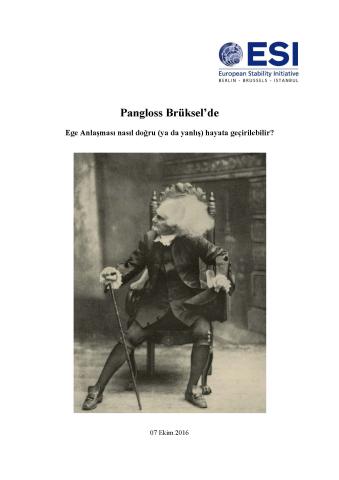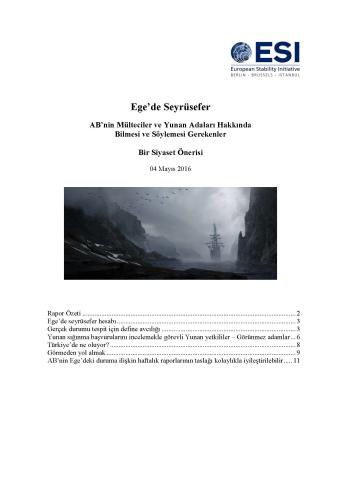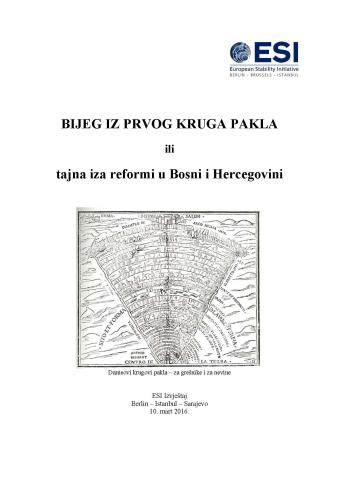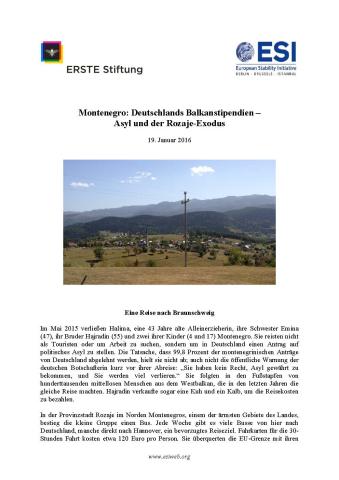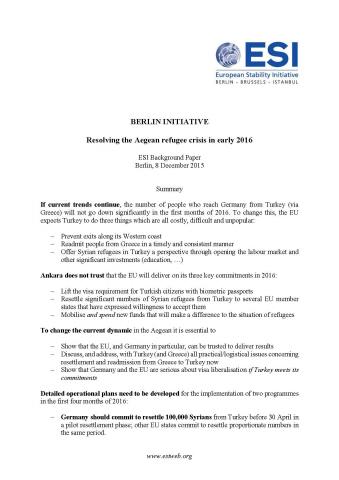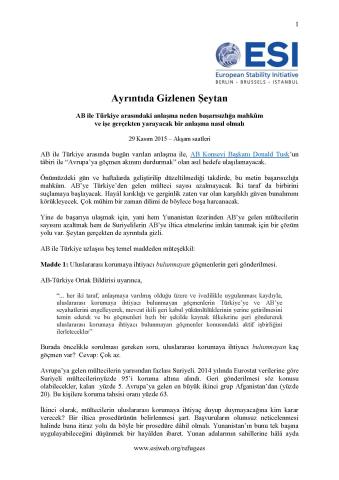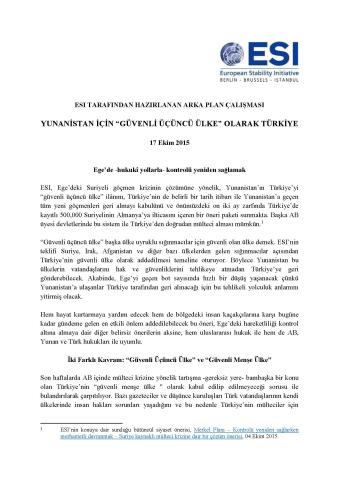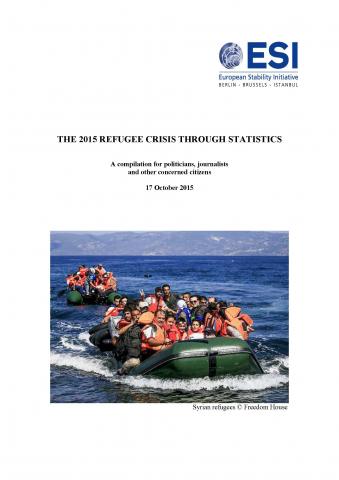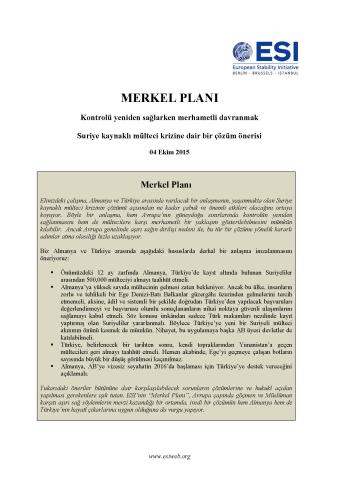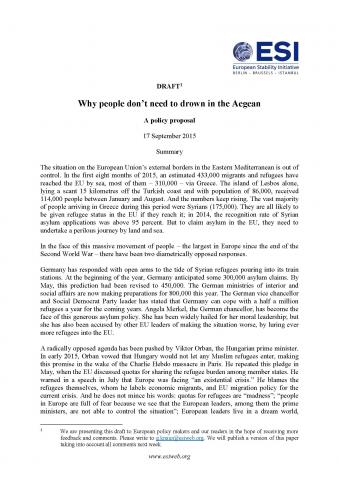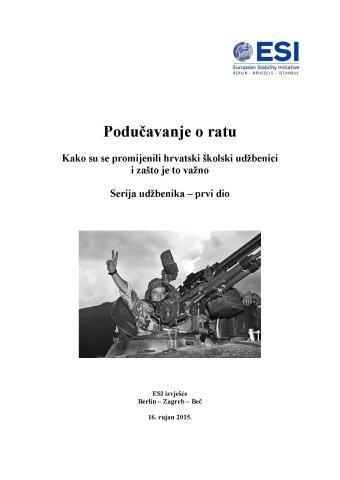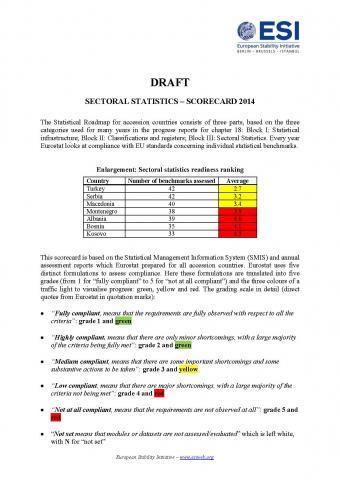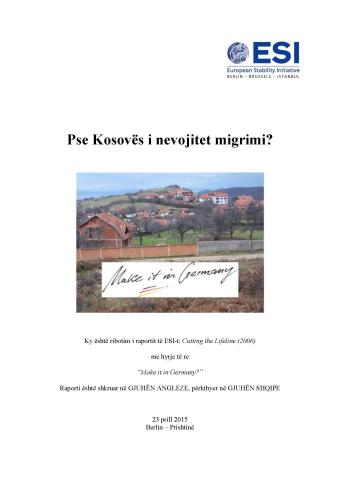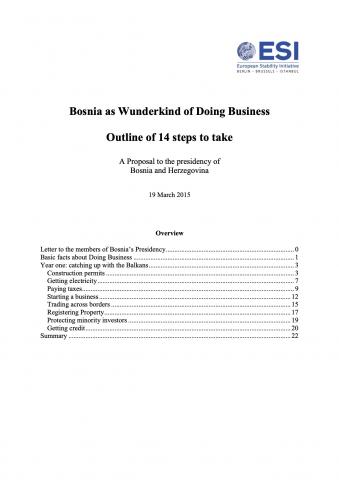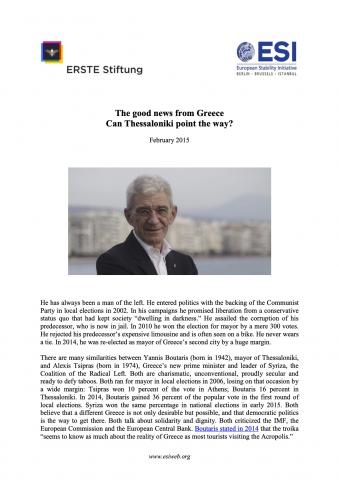Publications
155 PublicationsOn solid ground? Twelve facts about the EU-Turkey Agreement
The EU-Turkey refugee agreement reached on 18 March 2016 has had a dramatic impact on refugee movements in the Eastern Mediterranean. It has sharply reduced irregular crossings from Turkey to Greece and, with this, the number of people who drown on this dangerous journey. If the EU-Turkey agreement is implemented in full, it will demonstrate that it is possible to control borders and at the same time respect the UN Refugee Convention, combining compassion and empathy with control and security concerns.
The European Swamp (Caviar Diplomacy Part 2) – Prosecutors, corruption and the Council of Europe
Can basic international norms be undermined by corruption? Can international politics be fundamentally reshaped by the personal greed of politicians? These are among the most important questions in global politics today. When it comes to the Council of Europe, guardian of the European Convention of Human Rights and, since its creation in 1949, the leading intergovernmental human rights institution in the world, the answer to both questions is yes.
Pangloss in Brussels – How (not) to implement the Aegean Agreement
A closer analysis of the Commission's report shows how fragile the EU-Turkey agreement has become, and how little thought and effort is being put into overcoming obvious problems in order to make it work. When it comes to both implementation and communication the current effort falls dramatically short.
Navigating the Aegean – What the EU ought to know, and say, about refugees and the Greek islands – A policy proposal
This paper has one simple purpose: it is an appeal to European institutions to improve their reporting on what is actually happening on Lesbos, Chios, and other Greek islands. The information that is needed to assess the implementation of the EU-Turkey agreement is straightforward and should be presented in a weekly update. The fact that this does not exist yet is troubling.
Escaping the first circle of hell or the secret behind Bosnian reforms
One popular idea about Bosnia and Herzegovina among European observers is that Newton's first law of motion applies to its politics: this law says that an object at rest will stay at rest unless acted upon by an outside force. For Bosnian politics, that outside force has to be the international community.
Montenegro: Germany's Balkan stipends – Asylum and the Rozaje exodus
Nobody knows exactly how many thousands of people left northern Montenegro in the first half of 2015. When local civic organisations first sounded the alarm early in the year, some tried to count families with luggage getting onto buses to Germany. The national government in Podgorica first denied that anything remarkable was going on.
Berlin initiative - Resolving the Aegean refugee crisis in early 2016
If current trends continue, the number of people who reach Germany from Turkey (via Greece) will not go down significantly in the first months of 2016. To change this, the EU expects Turkey to do three things which are all costly, difficult and unpopular.
The devil in the detail - Why the EU-Turkey deal will fail and how to get to a deal that works
Unless this deal is substantially improved in the coming days and weeks, it simply sets the stage for failure. The influx of refugees coming into the EU from Turkey will not abate. Both sides will then blame each other. Frustration will erode already dangerously low levels of trust. Precious time will have been wasted.
Turkey as a "Safe Third Country" for Greece
A “safe third country” describes a country that it safe for asylum seekers of nationalities other than that of this country. The ESI proposal is based on the assumption that Turkey is a safe third country for asylum-seekers from Syria, Iraq, Afghanistan and other countries, so that Greece could return them to Turkey without jeopardising their rights and safety.
The 2015 refugee crisis through statistics - A compilation for politicians, journalists and other concerned citizens
The Greek-Turkish borders have been for years one of the main gateways to the EU for asylum seekers and other migrants who intend to reach the EU by illegally crossing borders. Between 2010 and mid-2012, the land route was the preferred way. In 2013, the total number of detections of illegal border crossings fell to 12,600 at all Greek-Turkish borders following a series of measures at the land border and in Greece. However, pressure started rising at the Greek-Turkish sea border to reach record numbers in 2014.
The Merkel Plan – A proposal for the Syrian refugee crisis
This paper outlines how an agreement between Germany and Turkey could have an immediate and dramatic impact on the Syrian refugee crisis. It would restore control over Europe’s south-eastern border without sacrificing compassion for the refugees. But with the far right resurgent across Europe, the window of opportunity for decisive action is closing fast.
Why people don't need to drown in the Aegean - A policy proposal
It is essential that asylum seekers are accepted from Turkey, before they take to boats to cross the Aegean. As a quid pro quo, it is also essential that Turkey agrees to take back all the refugees that reach Greece, from the moment the deal is signed. It is the combination of these measures that will cut the ground from under the feet of the people smugglers.
Teaching War - How Croatian schoolbooks changed and why it matters (Textbook series – part one)
Nationalists do not accept the view that in a democracy a historian’s role is to challenge cherished myths; and that in an open society history education should prepare students for citizenship in a world where all institutions are imperfect – a world where, unnervingly, even those we admire may be responsible for crimes.
Rankings that fail - Bosnia, Macedonia and Doing Business 2015
There is an obvious problem with how countries are ranked in the Doing Business project. Imagine two very different economies from two hypothetical countries seeking to climb the rankings. The first country – let us call it Balkania – consists mainly of cafés, small shops, wedding parlours and subsistence farmers. The other, Danubia, is an industrial economy producing high-value goods for export, with chemical plants, agro-processing, pharmaceuticals and industrial agriculture.
Sectoral Statistics - How to compare seven countries - Scorecard 2014
The Statistical Roadmap for accession countries consists of three parts, based on the three categories used for many years in the progress reports for chapter 18: Block I: Statistical infrastructure; Block II: Classifications and registers; Block III: Sectoral Statistics. Every year Eurostat looks at compliance with EU standards concerning individual statistical benchmarks.
Why Kosovo needs migration - From research to policy
In 2005 ESI undertook research on rural poverty, migration and remittances in Kosovo. Our conclusions were published in 2006 in a report called “Cutting the Lifeline” that showed how migration had been a necessity for many generations of young men in particular. The report also examined how after 1999, the European doors to legal work migration closed, and only the lucky few with close family in the diaspora could migrate through family reunification schemes.
Bosnia as Wunderkind of Doing Business - Outline of 14 steps to take – A Proposal to the presidency of Bosnia and Herzegovina
We carefully studied the astonishing rise in Doing Business rankings by Georgia and Macedonia. Here we outline how within one year Bosnia can reach a better rank than the Balkan average; and it will help you understand how within another year Bosnia could overtake the EU. The objective is to make Bosnia another global Wunderkind of Doing Business.
Measuring corruption – The case for deep analysis and a simple proposal
Which statements the European Union makes about corruption in South East Europe today have depth? Which are based on serious reflection and hard evidence? This matters because EU statements on corruption should be not only descriptive but also prescriptive not only pointing out how things are, but also how they ought to be.
The good news from Greece – Can Thessaloniki point the way?
He has always been a man of the left. He entered politics with the backing of the Communist Party in local elections in 2002. In his campaigns he promised liberation from a conservative status quo that had kept society “dwelling in darkness.” He assailed the corruption of his predecessor, who is now in jail. In 2010 he won the election for mayor by a mere 300 votes. He rejected his predecessor’s expensive limousine and is often seen on a bike. He never wears a tie. In 2014, he was re-elected as mayor of Greece’s second city by a huge margin.
Paris Paper: Enlargement and impact. Twelve ideas for 2015 - Dummy report
For reformers anywhere time is the scarcest resource. Leaders everywhere today face the risk of drowning in information, being swamped by articles, conversations, emails and occasionally reports and books. Active people live on top of ever-growing mountains of words. And “a wealth of information creates a poverty of attention.”



